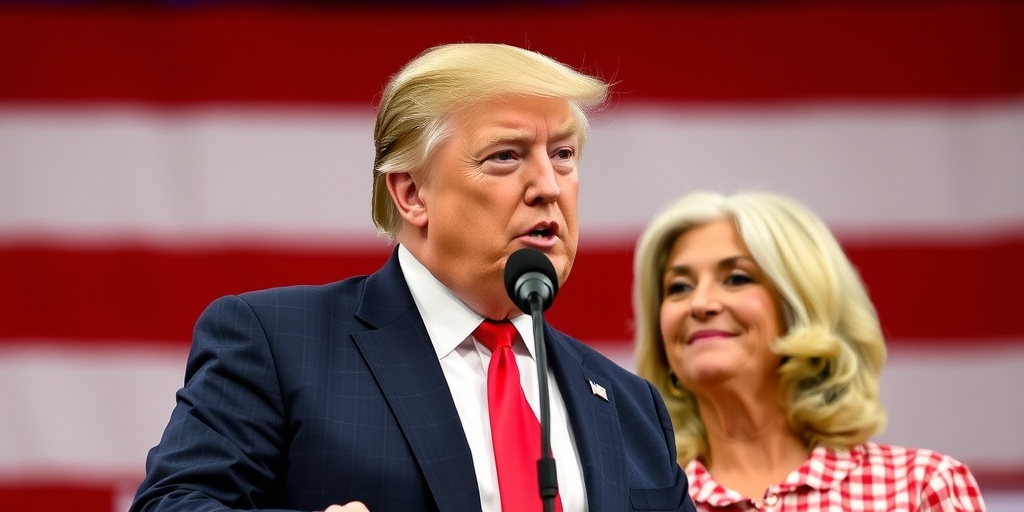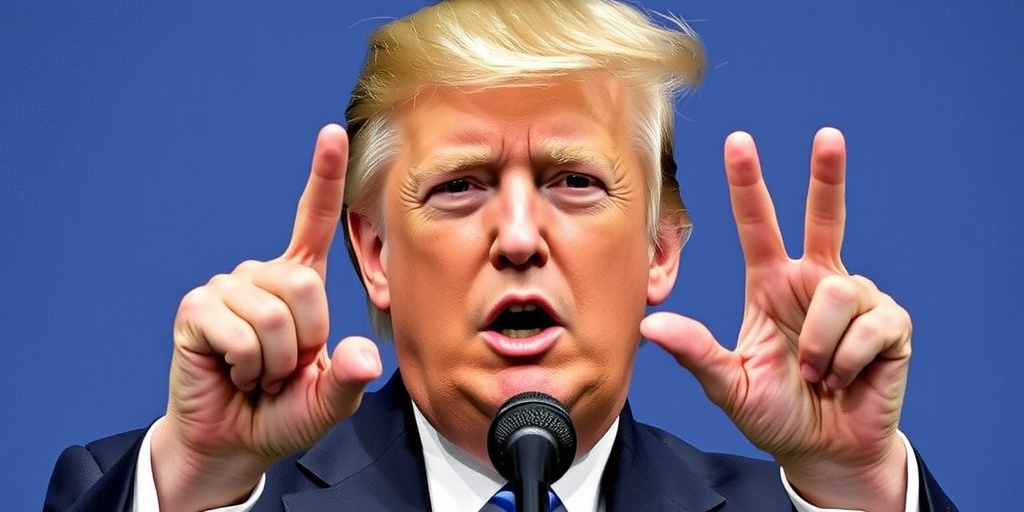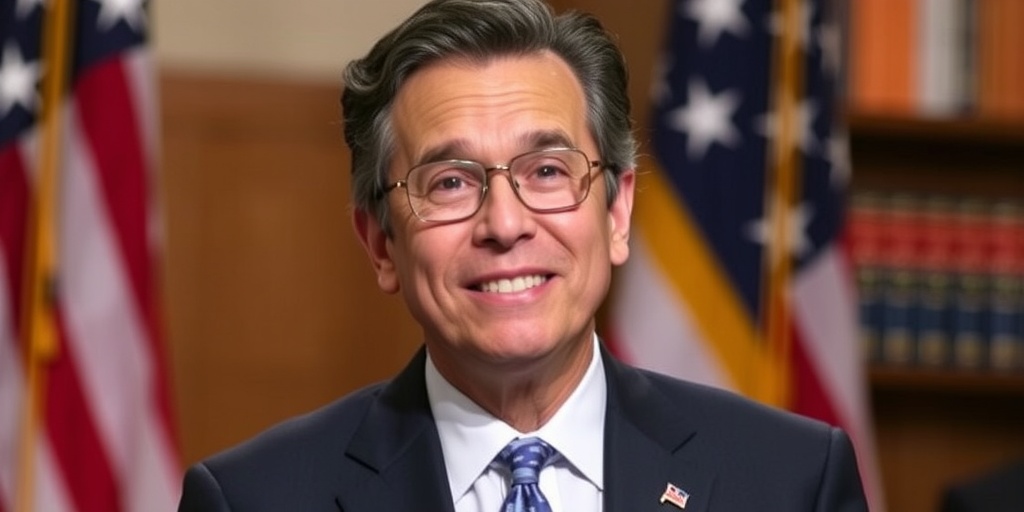Now Reading: Trump Backs Proxy Voting for New Parents in Congress, Challenging Johnson
-
01
Trump Backs Proxy Voting for New Parents in Congress, Challenging Johnson
Trump Backs Proxy Voting for New Parents in Congress, Challenging Johnson

Trump Backs Bipartisan Effort for Proxy Voting for New Parents in Congress
In a significant political development, former President Donald Trump has openly endorsed a bipartisan initiative aimed at allowing proxy voting for new parents serving in Congress. This unexpected support delivers a setback to House Speaker Mike Johnson, who has been actively opposing the measure. Trump’s remarks came during a flight to Florida aboard Air Force One, where he expressed his belief that congressional lawmakers should be able to participate in voting remotely, particularly when dealing with the responsibilities of becoming a parent.
“You’re having a baby, you should be able to call in and vote,” Trump stated, reinforcing his stance that new parents should not have to choose between their responsibilities at home and their duties in Congress. This endorsement is particularly noteworthy given the current political climate, where divisions within the Republican Party, especially on issues of parental rights and family support, are becoming more pronounced.
The inception of this proxy voting proposal largely stems from Representative Anna Paulina Luna, a Republican from Florida, who has spearheaded the initiative since her own experience with maternity. Luna’s resolution aims to grant lawmakers the ability to vote remotely for up to 12 weeks following the birth of a child, providing a critical change in the current rules that do not accommodate parental leave for members of Congress. She has utilized a legislative maneuver known as a discharge petition, requiring signatures from at least 218 members of the House, to fast-track the discussion around this important issue.
Earlier this week, Speaker Johnson attempted to prevent the resolution from reaching the House floor but was unsuccessful. This failure came after he canceled all votes for the remainder of the week, effectively stalling the legislative agenda and signaling a growing conflict within the Republican ranks. Trump’s intervention in this debate not only highlights a rare moment where he and Johnson find themselves at odds, but also underscores the significant influence Trump continues to wield over GOP priorities and actions.
As Johnson navigated this unfolding situation, he hurried to express his concerns to Trump, emphasizing his objections to remote voting. The Speaker’s worries center on the belief that proxy voting undermines the constitutional integrity of Congress. He has argued that any form of remote voting, no matter how limited, poses a "slippery slope" that could fundamentally alter the nature of legislative operations, which are designed to promote in-person debate and discussion among lawmakers.
In response to Johnson’s concerns, Trump reportedly acknowledged them but offered no definitive resolution during their exchange. The speaker has indicated that the topic remains a live issue, with the potential for further discussions before Congress reconvenes next week. This uncertainty leaves the future of the proxy voting initiative hanging in the balance.
On social media, Luna expressed her gratitude towards Trump for supporting a "pro-family Congress," reinforcing the notion that fostering family-friendly policies could resonate well within the broader public. She clarified that the intention behind the proxy voting measure is to create a temporary solution in exceptional circumstances to ensure that constituents continue to have their voices represented in Washington, D.C.
The debate surrounding proxy voting raises critical questions about the evolving nature of governance in the digital age. As technology renders remote communication increasingly accessible, the argument for accommodating the realities of modern family life in legislative practices is gaining traction. Supporters contend that allowing new parents to vote remotely not only promotes family values but also reflects a contemporary understanding of work-life balance that many Americans face.
As the House prepares for its next session, the dynamics surrounding this initiative will likely not only reflect the ongoing tensions between traditionalist and progressive factions within the GOP but also signal potentially significant shifts in congressional operational standards. Observers of the political landscape will be closely monitoring how this bipartisan effort unfolds, especially in relation to its implications for parental rights and parental representation on Capitol Hill.
In conclusion, Trump’s endorsement of the proxy voting initiative for new parents marks a pivotal moment in the ongoing discussions about the intersection of family obligations and legislative responsibilities. As lawmakers like Luna champion this cause, the future of congressional voting procedures hangs in the balance, promising to spark further debate and deliberation in the weeks to come. The outcome of this initiative could redefine parental support structures within Congress and enhance its responsiveness to the needs of American families.
Stay Informed With the Latest & Most Important News
Previous Post
Next Post
-
 01New technology breakthrough has everyone talking right now
01New technology breakthrough has everyone talking right now -
 02Unbelievable life hack everyone needs to try today
02Unbelievable life hack everyone needs to try today -
 03Fascinating discovery found buried deep beneath the ocean
03Fascinating discovery found buried deep beneath the ocean -
 04Man invents genius device that solves everyday problems
04Man invents genius device that solves everyday problems -
 05Shocking discovery that changes what we know forever
05Shocking discovery that changes what we know forever -
 06Internet goes wild over celebrity’s unexpected fashion choice
06Internet goes wild over celebrity’s unexpected fashion choice -
 07Rare animal sighting stuns scientists and wildlife lovers
07Rare animal sighting stuns scientists and wildlife lovers





















